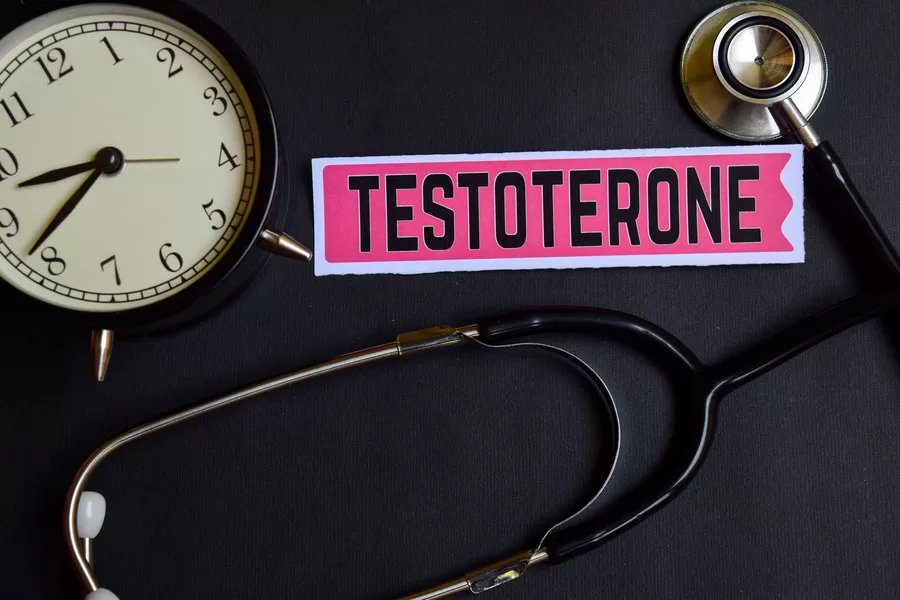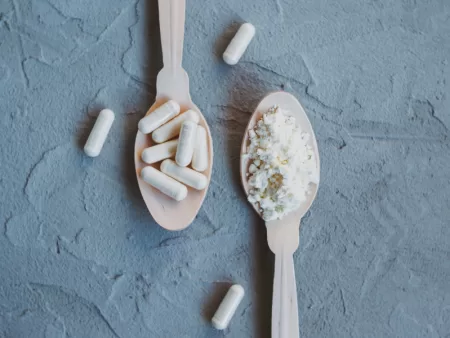
Ever pondered the secret behind the mesmerizing pink shades of sea dwellers like salmon and flamingos? The answer lies in Astaxanthin, a powerhouse antioxidant hidden in the depths of marine life, now recognized for its remarkable health-enhancing properties.
Harvested from the aquatic world, Astaxanthin sets itself apart with unmatched antioxidative strength. Picture a natural element so effective it traverses cellular barriers, offering protection and rejuvenation from within. Whether your goal is to elevate your physical endurance, foster youthful skin, or naturally balance your hormones, Astaxanthin emerges as a beacon of hope.
Astaxanthin
Astaxanthin stands out in the natural world, particularly within aquatic environments, as a keto-carotenoid. This specific type of carotenoid not only imbues seafood like salmon, shrimp, and lobster with their attractive pink and red shades but also confers significant health advantages. Classified within the broader spectrum of phytochemicals known as terpenes, astaxanthin is part of a group of organic compounds prevalent across various plants and some animals, noted often for their potent aromas.
The Unique Structure of Astaxanthin
What truly sets astaxanthin apart from other antioxidants is its distinctive molecular configuration. This structure is pivotal, as it grants astaxanthin the ability to integrate itself across cell membranes, effectively forming a protective barrier. This barrier is adept at shielding cells from the detrimental effects of oxidative stress by neutralizing free radicals both internally and externally. The capacity for dual-sided protection is a trait not commonly found in other antioxidants, positioning astaxanthin as a superior defender against cellular damage.
Combatting Oxidative Stress
The prowess of astaxanthin in mitigating oxidative stress lies in its antioxidant capabilities. Oxidative stress results from the accumulation of free radicals, unstable molecules produced in response to environmental stresses, which can lead to chronic diseases and accelerate aging. By embedding in the cell membrane, astaxanthin not only stabilizes the membrane but also fortifies the cell against external and internal harm, preserving cellular integrity and functionality. This level of comprehensive protection is essential for maintaining cell health and longevity.
Astaxanthin’s Antioxidant Superiority
When compared to other antioxidants, astaxanthin’s efficacy is notably higher. Research has indicated that it outperforms antioxidants like vitamin E and beta-carotene in neutralizing certain types of free radicals. This enhanced ability to fend off oxidative stress can be attributed to astaxanthin’s chemical makeup, which equips it to quench free radicals more effectively, thereby offering a more potent shield against cellular damage.
In essence, astaxanthin is a remarkable natural compound that offers unparalleled protection against oxidative stress, attributable to its unique molecular structure and ability to envelop cell membranes. This not only ensures cellular protection but also plays a crucial role in promoting organismal health and longevity. The vibrant hues of seafood harboring astaxanthin signify not just aesthetic appeal but a beacon of health benefits, making these foods valuable components of a nutritious diet.
Link Between Astaxanthin and Testosterone
Testosterone, an essential hormone found in both men and women, is a cornerstone for various bodily functions. It’s not just about muscle building or fat loss; testosterone’s influence extends to our overall sense of well-being. Recognizing this hormone’s importance, scientists have been keenly exploring how astaxanthin, a potent antioxidant known for its vibrant coloration in seafood, might play a role in testosterone regulation.
The Impact of Astaxanthin on Hormone Levels
At the heart of this investigation is astaxanthin’s antioxidant power. Antioxidants are like the body’s defense force against damage from free radicals, which can negatively affect our cells and organs, including those responsible for hormone production. The theory is that by reducing oxidative stress, astaxanthin might help in maintaining optimal conditions for testosterone production. This connection has sparked a series of scientific inquiries, aiming to decipher the extent of astaxanthin’s influence on testosterone levels.
Scientific Inquiry and Evidence
Research into astaxanthin’s effects on testosterone has brought to light some intriguing findings. Various studies have aimed to understand whether this antioxidant can directly boost testosterone levels or if its benefits are more indirect, such as by improving overall cellular health, which in turn supports hormone production. The results have been promising, though not entirely conclusive, pointing to a potential positive correlation between astaxanthin supplementation and testosterone levels.
The Mechanism Behind the Magic
How might astaxanthin affect testosterone? Scientists propose several mechanisms. One theory is that astaxanthin may enhance Leydig cells’ function, which are the cells in the testes responsible for producing testosterone. By reducing oxidative stress, astaxanthin could potentially protect these cells, ensuring they can perform their hormone-producing role more effectively. Another angle is the improvement of blood flow. Better circulation means more nutrients and oxygen can reach the testes, which could optimize testosterone production.
Current Research and Future Directions
While the body of research on astaxanthin and testosterone is growing, the scientific community agrees that more studies are needed. Current evidence suggests a positive link, with some studies showing increased testosterone levels in participants who supplemented with astaxanthin. However, the research is ongoing, and future studies are expected to provide deeper insights into how this antioxidant interacts with our hormonal systems.
In conclusion, the exploration of astaxanthin’s impact on testosterone is a fascinating journey into how natural compounds can influence our hormonal health. While the evidence to date is promising, pointing to astaxanthin as a potential natural aid for supporting testosterone levels, the scientific community is eagerly awaiting further research. As we continue to uncover more about this powerful antioxidant, its role in supporting hormone health remains a compelling topic for both scientists and health enthusiasts alike.
Enhancing Health with Nature’s Antioxidant
The quest for natural solutions to boost essential hormones has uncovered the potential of a specific marine-derived compound. For males, the promise of augmented hormonal balance could translate into notable improvements in physique, metabolic efficiency, and intimate well-being. Beyond aesthetics, these enhancements contribute to better management of blood sugar levels and a lower risk of lifestyle-related ailments. The positive impact on libido and reproductive health further underscores the broad spectrum of advantages offered by this nutrient.
Crucial Support for Female Vitality
In the female body, even minimal levels of this androgenic hormone play a pivotal role in preserving muscular and skeletal health. The importance of such hormonal support becomes increasingly evident with age, helping to deter bone density loss and maintain functional autonomy. This highlights the significance of the marine antioxidant not only in enhancing physical resilience but also in promoting longevity and quality of life for women.
Smart Choices in Supplementation
With the burgeoning interest in the wellness benefits of carotenoids, discerning the optimal supplement becomes crucial. The key lies in selecting products verified for their cleanliness and efficacy, steering clear of unnecessary additives. Natural extracts, particularly those originating from algae, the primary source of this vibrant pigment, are preferable for their authenticity and concentration of active ingredients.
Seeking Expert Guidance
Introducing a new element into your health regimen is a step that benefits from professional insight. This is especially pertinent for individuals navigating existing health conditions or who are on a regimen of pharmaceuticals, due to the potential for adverse interactions. Engaging with a healthcare provider for personalized advice ensures that this dietary addition is a beneficial move for your specific health circumstances.
Empowered Wellness through Informed Supplementation
Embracing natural compounds for health optimization presents a pathway filled with potential, yet it demands informed decision-making. The ability of this potent antioxidant to modulate hormonal health, enhancing physical form, and vitality, offers an appealing strategy for those seeking to improve their well-being naturally. By prioritizing quality in supplement selection and heeding expert advice, individuals can safely integrate these benefits into their health strategy, fostering a proactive approach to natural health enhancement.
Safe Use of a Prominent Marine Antioxidant
Esteemed for its robust antioxidant prowess, this nutrient from the sea is widely acknowledged as secure for consumption within prescribed limits. However, arming oneself with knowledge about its safety boundaries and potential for adverse effects is paramount for those considering its inclusion in their dietary regimen.
Identifying Minor Side Effects
Occurrences of negative reactions are rare and often of minimal concern, yet they are worth noting:
- Gastrointestinal Responses: A small percentage of individuals might encounter stomach upset or similar discomforts.
- Alterations in Skin Hue: Consuming this compound in large quantities may temporarily impart a pink or orange tint to the skin, an effect that dissipates with reduced intake.
- Variations in Hormonal Equilibrium: Attention to any unexpected hormonal changes is prudent, given the compound’s influence on endocrine functions.
Interaction With Prescription Medications
The possibility of this natural substance affecting the action of certain pharmaceuticals cannot be overlooked, especially for individuals using:
- Blood-thinning agents.
- Blood pressure regulators.
- Hormone-modulating therapies.
Advisories for Specific Demographics
While beneficial for many, there are groups for whom caution is advised or a healthcare consultation is recommended:
- Women who are pregnant or breastfeeding: The absence of definitive studies in these populations warrants a conservative approach.
- Individuals with Disorders Influenced by Hormones: Those managing conditions sensitive to hormonal fluctuations should seek guidance from a medical professional.
Guidelines on Dosage for Optimal Safety
Adhering to the established dosage range of 2 to 12 mg per day helps mitigate the risk of side effects. Personalizing dosage based on one’s health status and observing the body’s reaction can further ensure a positive experience with this supplement.
Comprehensive Insights for Considerate Supplementation
Employed within the recommended parameters, this powerful marine antioxidant can be a beneficial addition to one’s health regimen, boasting a solid safety profile. Being cognizant of its subtle side effects and the potential for drug interactions is crucial. As with all supplements, seeking the counsel of a healthcare professional is advisable to tailor the approach to one’s unique health landscape.
Conclusion
Astaxanthin is a powerful antioxidant from marine sources, offering unmatched protection against oxidative stress and cellular damage. Its unique molecular structure allows it to provide comprehensive protection across cell membranes, outperforming other antioxidants like vitamin E and beta-carotene. Astaxanthin has potential benefits for enhancing testosterone levels, supporting muscle strength, reducing aging signs, and improving overall well-being. Choosing high-quality astaxanthin supplements and consulting with healthcare professionals can maximize its health benefits while ensuring safe use. Current research is promising, pointing to astaxanthin’s significant role in hormonal health and calling for further study to unlock its full potential.
FAQs
Astaxanthin, a distinguished keto-carotenoid, thrives in marine settings, bestowing vibrant pink and red hues upon seafood such as salmon and shrimp. It’s acclaimed for its exceptional antioxidant capabilities.
Renowned for its antioxidative might, Astaxanthin shields against cellular damage, enhances muscular and skin health, potentially uplifts testosterone levels, and amplifies general wellness.
Certainly, by diminishing oxidative stress and facilitating quicker muscle recovery, Astaxanthin emerges as a potent ally for athletes desiring enhanced stamina and reduced recovery periods.
Astaxanthin is broadly safe within recommended doses, yet expectant or breastfeeding individuals and those with hormone-sensitive conditions should consult healthcare practitioners before use.
Selecting superior-quality supplements and seeking personalized advice from healthcare professionals are crucial. Typical dosage recommendations range from 2 to 12 mg daily, adaptable based on personal health objectives and conditions.







